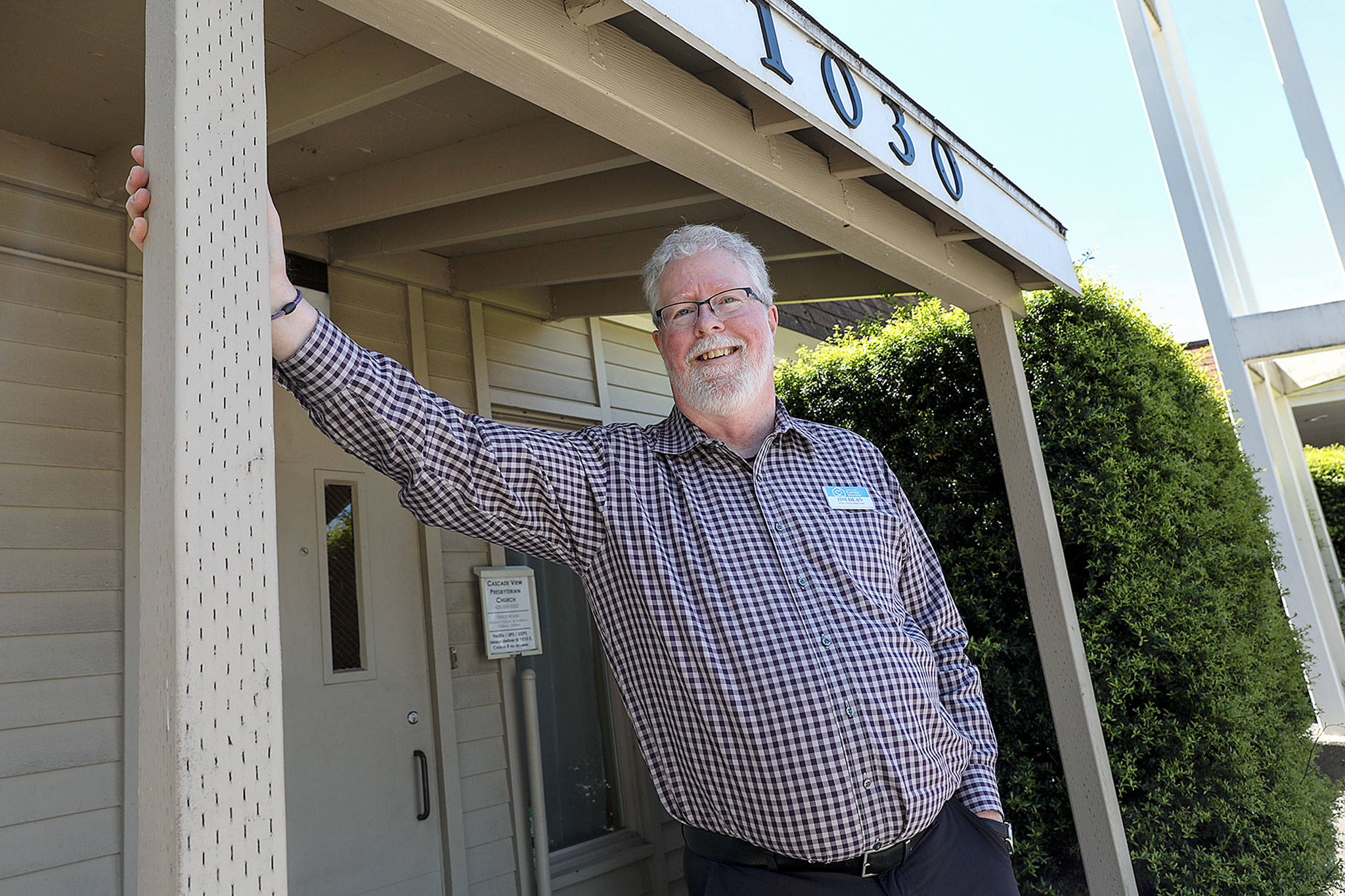EVERETT — There are few options in Snohomish County for families experiencing homelessness and even fewer if they don’t want to be split up. To stay together many move into their vehicles rather than enter separate shelters.
The Interfaith Family Shelter in Everett offers another alternative to living on the street to those families that are able to secure a spot. It’s just one of two sites in the county that accepts dads and older sons, said Jim Dean, the executive director of the nonprofit.
Barely halfway through November, the shelter had already received 80 phone calls from families looking for help. A safe parking lot was launched this year, nearly doubling the shelter’s reach as demand for housing grows.
Nestled into north Everett, the shelter can provide home to 11 families at a time. In a communal kitchen parents gather as kids wander through a maze of toys and high chairs moving between a courtyard and living room.
Interfaith, which shares its roots with Housing Hope, was launched by the North Snohomish County Council of Churches in the late 1980s. The low-barrier shelter has moved more than 460 families into permanent housing since 2010.
“The search for housing starts the day they enter the shelter,” Dean said.
Some families need a few hundred dollars and a place to stay for a few days to get back into housing. Or legal help resolving an eviction, in order to become self-sufficient once again, Dean said.
Others require more long-term assistance and are connected with housing vouchers or a rapid-rehousing program.
“You have to work every angle you can to get people into housing,” Dean said.
Dean and the crew of case managers stick to a strict 90-day limit to each family’s stay. This year, the average stay dropped to 68 days. There are exceptions made for families with newborns or if housing is lined up but is not quite ready.
“It’s really critical people don’t get stuck,” Dean said.
In the past Interfaith never kicked people out, he added. It was thought of as a shelter first, then housing program — now it’s the reverse.
It’s families that aren’t willing to engage who leave the program before permanent housing is found, he said.
“You just have another family waiting for that spot,” Dean said. “We’re still not coming close to meeting the needs of people who need housing.”
More people are finding shelter through housing programs in the county, but the population of those experiencing homelessness continues to grow, data from this year’s Point-in-Time count shows. The annual survey counted a 30 percent increase in people without permanent shelter in 2019 over the previous year.
Interfaith, always looking to expand its reach, partnered with Everett and Cascade View Presbyterian this year on a Cars to Housing program. It was the first sanctioned safe parking spot in the city.
The project, funded by a city grant launched over the summer, nearly doubled the shelter’s reach.
Five families at a time can park in a rarely used part of Cascade View’s parking lot. Interfaith provides case management. So far 13 families have gone through the program, nearly all of them moving into permanent housing or into a shelter.
“Families are moving through the program faster than expected,” Dean said.
Seeing success, Interfaith wants to add another Cars to Housing site next year.
And the organization is working with Marysville to take over a city-owned house which would add two more housing spaces.
Interfaith is more than just a housing program.
“If we want to change the trajectory of these families, education is a huge piece,” Dean said. “It’s crucial to breaking the cycle of poverty.”
Julie Brenamen, Interfaith’s child and family advocate, works with families to ensure kids are registered for school or enrolled in daycare.
Children experiencing homelessness tend to fall behind and are more likely not to complete school, said Brenamen, who runs a Learning Hour each weekday.
“I’ve got the best job,” she said.
And perhaps one of the more challenging at the shelter. She has to balance a wide age range and a classroom full of kids.
“The goal is to instill the habit of coming home from school and doing homework,” she said.
Lizz Giordano: 425-374-4165; egiordano@heraldnet.com; Twitter: @lizzgior.
How to help
Interfaith Association of Northwest Washington provides housing and programs to address the needs of homeless and low-income families. The shelter works to cultivate skills families need for self sufficiency through case management support services.
There are many options to donate to the shelter. Visit www.interfaithwa.org/howtohelp/ or call 425-252-6672 to learn more.
Talk to us
> Give us your news tips.
> Send us a letter to the editor.
> More Herald contact information.

























